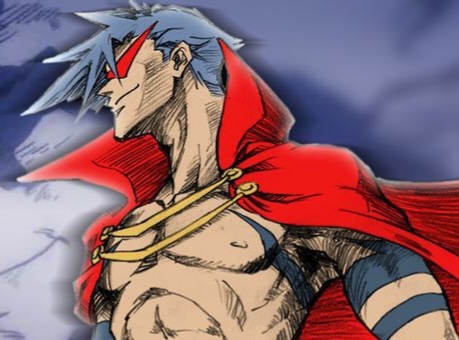I never really thought the crucifixion part of the story made any sense, but if you take away his love and desire to save people, why should I give a shit about Jesus? He’s just a powerful dude who loves himself and engages in elaborate and traumatizing rituals for the aura. It’s literally just “listen to him because he’s God and will punish you if you don’t,” like the most nu-atheist cartoon version of Christianity but these theo-fascists believe it.
Just yesterday I was talking here about Cuomo’s post bragging about being a member of a political dynasty being a sign that Nietzsche won. I think that bastardizing Christianity to the point where the good thing about Jesus isn’t the love, salvation, liberation from sin, and eternal life, but that Jesus is really glorious, is more evidence for that argument.
my recall of early Christianity is that there were sizable schools with followers that didn’t really care much about Jesus as a supernatural being, the stories of these magic shows or even the story of the resurrection itself, but rather thought that his teachings were what mattered. equality, universal love, etc.
the Romans and other already wealthy converts with cool state offices and titles/sinecures said all those people were heretics, had their gatherings banned and tortured many unto death to silence them and eradicate their existence.
so, as far as all the big powerful, hierarchical institutions rife with corruption and abuse are concerned then and now 2000 years later, we can continue to ignore what he said or the context of the historical Jesus and keep focus on the official interpretations of magic and spectacle as recorded by the wealthy pedophiles in their jewels and silk robes.
I don’t really place much stock on this kind of theory (don’t wanna get excommunicated
 ) but you might like what Michael Hudson has to say on the subject.
) but you might like what Michael Hudson has to say on the subject.I found a YouTube link in your comment. Here are links to the same video on alternative frontends that protect your privacy:
deleted by creator
Lisan al Gaib!
Salvation from what

Well, naturally, from the Nietzschean perspective it’s salvation from toil and being a slave. To which modern fascists and liberals spit in disgust and say that slaves ought to learn their place.
ah, I thought you were talking about from Jesus’s perspective.
say that slaves ought to learn their place.
Truly disgusting.
I think most people that earnestly convert to Christianity probably do so for reasons related to the things I listed; admittedly I don’t know how thoroughly understood the theology about the nature of hell, universalism (hopeful or not), and other finer points are, so I think what you were getting at (that Jesus saves people from a hell of His (well, the Father’s) own creation) might be a contradiction that is commonly believed in.
I don’t think its a contraction for god to punish nonbelievers. Yes a lot of people do follow christianity to avoid hell and get to heaven, among lots of other reasons I’m sure.
I don’t like Nietzsche, but while he favored “master morality,” I think that he argued that it needed to synthesize itself with the greater reflectiveness of “slave morality” to become something better, whereas this is just pure “master morality” with no concept of reflection or anything but yielding to power. I think it would be more accurate to say that Elisabeth Förster-Nietzsche and the Nazis won.
Yeah, you’re totally right. I don’t know if you’ve read Really Existing Fascism but I think there’s a sense in which liberalism is the implementation of that synthesis of the reflectiveness of slave morality and the anti-egalitarianism of master morality.
I haven’t read it, but I will now.
After thinking about it more, I should give your criticism more credit, because a huge thing with Nietzsche was that the Jews were poisoning the noble pagan society and inverting the life-affirming values of antiquity into something oppressive and life-denying, which is something that Nazis could just take bar for bar if they exclude the part where the “poison” in question is Christianity (and that’s basically what they did, they just said that the poison is communism and maybe a general idea of Jewish perversion). You can turn on Fox News at any time of day when they aren’t just taking about the nasdaq and they will be saying basically the same thing but now it’s Muslims, atheists, or some undefined cultural and academic elites who definitely aren’t Jews except for many of them being Jewish. You can also see the same thing said on Dem news whenever they talk about Mamdani.
Can I hit ONE MILLION apostles by CRUCIFYING MYSELF? GET THAT LIKE BELL READY CHAT.
Getting publicly executed as a prank on the Romans
He’s not the messiah! He’s a very naughty boy!
The Protestant Reformation and its consequences have been a disaster for the human race.
Jesus died so he could enter Hell and carry out the Harrowing. This was because all the virtuous souls who died previously were trapped there. Jesus goes down into the Underworld to free them, taking them to Heaven, which is now where people go due to God’s grace. Since humans were exiled out of Paradise, they were no longer able to enter a proper afterlife.
This bit of mythology is shortened to “Jesus died for our sins.” People were already saved when they accepted Christ as their lord, which they could do when they were still alive. Jesus’ death was strictly for tricking Satan into letting 30 AD Doomguy into his base, who proceeded to go medieval on the demons holding everyone hostage.
This is the doctrine held by Catholicism, Eastern Orthodoxy, Greek Orthodoxy, and Oriental Orthodoxy. Rejection of the Harrowing is only seen among certain sects of Protestants.
tl;dr-- correct.
Jesus is doom guy? 😲
yeah there’s a part in the Divine Comedy when Dante is touring hell that describes the aftermath of how Jesus apparently punched through a bunch of castle walls and slaughtered scores of demons, like the poem describes all the collapsed walls and destruction that’s apparent even after like 1300 years
it’s pretty metal honestly
I am a fool and forgot about this if I heard about it at all. Is that why they talk about there being a massive earthquake in Hell corresponding to the crucifixion in the Inferno?
yes
Wait, I’m Catholic, and the explanation of the mechanism of Salvation I learned (and I read more theology as a teen than I read theory now) is that the Crucifixion is a critical part of Salvation for all the living souls (fully agree with you on the Harrowing and all the previous souls), In the process of Jesus being crucified and killed, the Holy Ghost is spilled over all the earth and all those who accept it are saved; like a delicate flask of perfume being shattered and imbuing its scent on the surroundings. Do you remember where you read this?
Do you remember where you read this?
Art history class lmao
But also I haven’t been a practicing catholic in decades. Ironically, I’ve read more parts of the Bible as an atheist than I ever did as a believer.
I am from a USian church, so what I learned may be completely heretical, but what I was taught was that Jesus served the role of a sacrificial animal, but by being entirely flawless his sacrifice was final and forgave all sins? I dunno. No matter how specific they get in parallels with OT sacrifices, they remain fairly vague about how precisely it saves us.
If you’ve played the elder scrolls. Jesus’s is the divine logos of the world (to say he is the amaranth is wrong but also a decent inital grasping) and his sacrifice was a dragon break that changed the vector of the logos towards salvation and re-communion with God, this time as fully mature beings graced with knowledge.
This post brought to you by Teilhard de Chardin
That also expresses the same meaning as what I said; the point is that Christ, by virtue of being fully divine, has an infinite amount of mercy and grace that, via the Passion, gets extended out to all of humanity like an olive branch (covenant) from the Father. I know the chud megapastors spam the verse a lot, but John 3:16 explains the idea, too.
Yes, this is correct, though you can add a few more levels of abstraction. (The logos of reality sacrificing itself and being remade anew, etc.)
Mardoniush replies to your theology post
Yes, this is correct

raised Mormon and literally never heard of this
That’s metal af
Jesus Christ Demon Slayer, I want to see the anime
https://www.metmuseum.org/art/collection/search/435725
Bosch has my favorite depiction of the Harrowing, dude said he was a devout Christian but I think he was an entertainer first and foremost
It’s not like Catholics are much better, look at what we did in central and south America
Eastern Orthodoxy is the real catholic church. The Bishop of Rome is a pretender of Peter.
sup, Dreher?
is it fair to say that Protestantism is just Christianity with capitalist characteristics (which is to say Catholicism was Christianity with feudal characteristics, etc) ?
No, it isn’t. Like what do you even mean? Protestantism has no inherent stand on the mode of production, it has no inherent stance on any non theological issue. The only thing that defines “Protestantism” as a distinct set of beliefs is the three solaes. Faith, scripture and grace.
Saying Anabaptists are more capitalist because of their belief structure than Opus Dei (who did religious neoliberalism in Spain) is just an absurd notion. There are hundreds of protestant denominations with their own kinds of brain worms, some of them even don’t suck entirely.What I mean is that it arose and became dominant in the wake of Capitalism’s rise in western political theaters. Catholicism has historically been hand-in-glove with feudal lords and curbed the expansion of economic liberalism, a few examples you are probably familiar with:
-Papal bulls regulating colonial trade along national lines
-Catholicism’s protections of trade guilds
-Catholicism rejected the sanctity of free trade and the profit motive (i.e. Weber’s “protestant work ethic”)
-Catholicism held large swaths of land and infrastructure which resisted market privatization
-Catholicism’s condemnation of usury and credit systems
All of the above led to not only nations adopting Protestantism in order to escape the limitations imposed on them by the Holy See, but also for capitalists to enthusiastically and materially lend their support to protestant movements leading to the critical mass required to cement the schism.
I agree the explicit, theological distinction between Catholicism and Protestantism is not one of economic modes of production, but I don’t think it is hard to see why historically Capitalism and Protestantism grew to power and prominence, while influencing and supporting each other, during the same centuries. Protestantism provided the necessary “grey-areas” to allow for capitalism to flourish in Europe compared to the Catholics who were institutionally reluctant to ingest capitalism’s rise. The manifold denominations means that essentially, Protestants can have whatever religious rules they want (just start another denomination whenever you need to change the rules). On top of that, the feudal monarchs of Europe were quick to identify their common ground with the Vatican; both feudalism and Catholicism were having to suppress revolutionary upstarts.
Now, yes, but previously it was Christianity with feudal/monarchist characteristics (thinking church of England and such), and before that it was Christianity with early enlightenment characteristics (Martin Luther).
Because there’s not a central authority it is now adaptable to the social structures around it. In the modern day it is predominantly [settler] colonial flavored.
Since it is prone to splintering you see denominations like the Quakers adapting to pacifism and and simple lifestyle/spiritual practice. You see black churches that have a liberationary message. Ofc they are in the minority.
deleted by creator
I hate that I read a lot of John Piper when I was a Christian so I actually understand the theology behind what she is saying (tl;dr it’s just Calvinist BS)
Care to elaborate? I’m an intrigued sicko lol
Sure, though it’s complicated because it’s both simplistic and complicated. Or at least it may sound complicated because it’s so demented, idk.
Calvinism holds that God doesn’t necessarily “love” everyone. He did not create the universe because he loves humanity or even just to express his creative powers per se: he did it because it glorifies himself. And because he is the eternal creator, he is worthy of glory. God is not a loving king (not to everyone at least), he is a powerful king. He demands that his subjects “glorify” him.
And also under Calvinism, God loves some but not others. Every single person he created deserves an eternity in hell. However, because it glorifies him to do so (not because he loves some of us, even though he does), he has so graciously chosen some of to avoid that fate and spend eternity in heaven. But not others, just a select few (“The Elect”, as Calvinists call themselves).
Okay, that makes sense. If you’re a sicko.
I knew about Calvinism’s elect, but I didn’t know about the reasoning or justification. I didn’t know about the glorifying part, so original post makes a bit more sense now.
If you ever want to elaborate more on this feel free. I’m all ears. It’s actually fascinating because it’s so deranged lol!
I also am curious about a historical material lens of Calvinism (the reformation and the rise of the bourgeoise, kings challenging the authority of the Pope and yadda yadda). I don’t know any of it in full detail, just some hints and broad strokes.
I have had an interest in making a collection of essays that takes white Evangelical Christianity and dissects it with a Marxist / dialectical materialist lens for a while now. But that’s like, a multi-year project. But if I ever get around to it I’ll be sure to share it here.
Please do! And ping me when you do cuz I will want to read that!
I grew up with (Russian) orthodox Christianity and from that perspective the take is outright heretical LOL
USAian “Christians” are wild, like WTF. This take is outright heretical
- signed, an ex-ROC “member” (for the lack of a better word)
I’ll say it a thousand times:
American Protestantism is a syncretic religion combining Christian iconography with white supremacist faith.
All of their accusations of others being satanic is pure projection, you couldn’t get anything closer to genuine devil worship than amerikkkan kkkonservative kkkhristianity
Remember folks, if you don’t sin, Jesus died for nothing.
The great and venerable Jesus Christ would execute all Americans
i know god isn’t real because the united states of america exist
“take this cup from me” was just for reacts?
“Don’t forget to CRUCIFY that Like button!” Matthew 420:69
He certainly stayed in that hole for 3 days to aura farm, what you tell me god couldn’t just resurrect immediately?
MrBeast offered Him an extra $500k to stay in that rock for three more days but He turned it down
He just wanted to reschedule the sabbath to Sunday.
It was on cooldown. He had to use it earlier because he’s a scrub who likes to stand in AoE splash zones. Worst fucking raid healer, I swear
Not allowed to work on Saturday remember.
The heresy of neo-Calvinism on full display
I’m not a fan of the reformed church but I’m pretty sure even Calvin would be against this.
Jesus died for a book deal, have you seen the royalties from the bible? Not to mention the movie deals.
vibes sermon ass honky
no more half measures walter
Jesus was a clout chaser confirmed
























